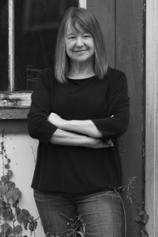The Wine Lover's Daughter: A Memoir
Review
The Wine Lover's Daughter: A Memoir
Hard as it may be to believe, there was a time when millions of Americans weren’t embarrassed at the thought of seeking intellectual attainment. They formed Great Books Groups to discuss the classics and avidly watched quiz shows where (the occasional scandal notwithstanding) the contestants had to be smart and well-read to win. Host of a radio (and later television) show called “Information Please,” and longtime editor of both the Encylopaedia Britannica and the Book-of-the-Month Club, among many other literary activities, Clifton Fadiman was indefatigable in helping to feed that hunger.
Now Fadiman’s daughter, Anne, herself an award-winning author, whose THE SPIRIT CATCHES YOU AND YOU FALL DOWN won a National Book Critics Circle Award, has written a warmhearted memoir of her father’s life. Though it doesn’t neglect his nearly seven-decade career as a public intellectual, as its title implies, THE WINE LOVER’S DAUGHTER mainly is the loving story of her father’s life as an oenophile.
“Aside from books, he loved nothing --- and no one --- longer, more ardently, or more faithfully than he loved wine,” Anne writes of her father. Each in its own way, his twin passions provided avenues of escape from his humble birth in 1904 Brooklyn, "a century before it became fashionable." At an early age, Fadiman did his best to shed his Jewish roots, although, as Anne explains, that heritage virtually precluded attendance at Harvard or Yale. Instead, like many bright Jewish young men from New York, he enrolled at Columbia, where two of his best friends in the Class of 1925 included scholars and critics Jacques Barzun and Lionel Trilling.
"[Fadiman] certainly would be smiling at his daughter's grace in capturing the essence of his personality as expertly as he might have appreciated the subtle bouquet of a fine Cabernet or Pinot Noir."
Fadiman’s prolific career in the world of books included stints as editor-in-chief at Simon & Schuster (at age 28), as the lead reviewer at The New Yorker and the production of numerous collections, anthologies and translations, among other works. But Fadiman was viewed more as a popularizer than an original scholar. Anne concedes (invoking the taxonomy of Dwight Macdonald’s famous essay, “Masscult and Midcult”) that “although middlebrows considered him a highbrow, highbrows disowned him.” Despite her own considerable literary accomplishments, Anne reveals her own insecurity about growing up in her father's considerable shadow, an “oakling” to his “oak.”
As a result of Prohibition, Fadiman didn’t consume his first glass of wine until 1927, in Paris, where he had traveled to lure his first wife back home after she had abandoned him for another man. He didn’t purchase a whole bottle until 1935, and for the next 15 years he meticulously recorded his purchases in what he called his “Cellar Book,” a document Anne discovered among his papers after his death.
Fadiman didn’t simply enjoy the nightly half bottle (later a full one) he shared with his wife, Annalee Whitmore Jacoby, Anne’s mother and an accomplished writer herself. He was a wine scholar, co-authoring the encyclopedic THE JOYS OF WINE, a volume Anne calls “so lavish as to be almost pornographic,” with a close friend, Sam Aaron, in 1975. Despite his ample consumption, there never was a hint of any problem with Fadiman’s drinking. For him, wine was a liberating force, not a destructive one.
Anne devotes an informative chapter to the mystery of taste, seeking, with only limited success, an explanation for her lack of affinity for the beverage that was such a passion in her father’s life. She recounts her journalistic investigation with scientists at Cornell and Yale, exploring the territory of her tongue’s papillae for an answer to this question.
Though they’re not even close to being the stuff of scandal, Anne doesn’t attempt to whitewash some of the less appealing aspects of her father’s life. These included his unabashed male chauvinism, a worldview that made him capable of asserting that “women are not as good at conversation and they know absolutely nothing about wine.” She also alludes to, though with scant detail, a couple of extramarital affairs.
Among the most moving portions of the book are Anne’s descriptions of Fadiman’s final years. He remained intellectually vigorous until his death on Father’s Day 1999, at age 95, but when he was 88 he was afflicted with retinal necrosis, a disease that eventually cost him virtually all his eyesight. In these challenging days, a period his daughter calls “in many ways one of the happiest of his life,” a man who estimated he had read 25,000 books in his lifetime and now depended on books on tape to maintain his voracious consumption courageously “learned how to be blind.”
“My father may have felt like an outsider in many aspects of his life,” Anne concludes, “but when he drank wine with friends, he always belonged.” For all the insecurity about his origins that caused him to flee them throughout a long life, and the gnawing doubt about whether his intellectual achievements ever would receive the recognition he thought they deserved, Clifton Fadiman’s lifelong love affair with the civilizing qualities of wine was an enduring source of pleasure. He certainly would be smiling at his daughter's grace in capturing the essence of his personality as expertly as he might have appreciated the subtle bouquet of a fine Cabernet or Pinot Noir.
Reviewed by Harvey Freedenberg on November 22, 2017
The Wine Lover's Daughter: A Memoir
- Publication Date: November 13, 2018
- Genres: Memoir, Nonfiction
- Paperback: 272 pages
- Publisher: Farrar, Straus and Giroux
- ISBN-10: 0374537941
- ISBN-13: 9780374537944




